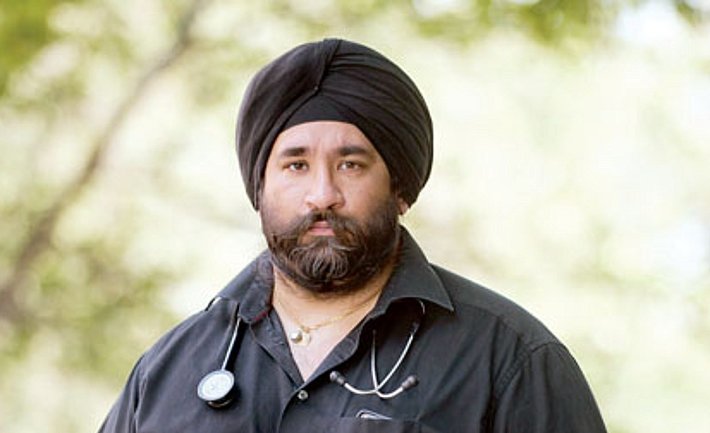Two Sikh brothers who are physicians in Quebec chose to set aside one of the most important tenets of their faith to fulfill another one. To save the lives of their patients in the province that has suffered 62 percent of the COVID-19 deaths in Canada, they shaved their beards so that they could wear N95 masks, which offer protection from the coronavirus.

“As some of you are aware, I am a very religious person,” said one of the brothers, Sanjeet Singh Saluja, Co-Associate Director of Emergency Medicine at McGill University Health Center (MUHC) in Montreal. “It gives me great pride to be a Sikh man and it is a strong part of my identity.”
“One of the pillars of the Sikh faith is Seva, which is service to mankind,” said Saluja. “However, another pillar of the faith … is Kesh, which is the practice of allowing one’s hair to grow naturally out of respect for the perfection of God’s creation.” Added the doctor: “In this time of pandemic, I am faced with an existential crisis as the latter [pillar] has severely limited my ability to serve.”
“We could choose not to work, but in a time when healthcare workers are falling sick, we would be adding stress to an already taxed system,” Saluja said in a video posted on the MUHC website. “We could decide to simply refuse to see COVID-19 patients until viable protection is available to us, but that goes against our oath as physicians and against the principles of Seva.”
Because specialized protective masks would have taken several months to be delivered and healthcare workers at his hospital were overburdened, not to mention falling ill, waiting was not an option for Saluja and his brother, who is a neurosurgeon.
Besides, said Saluja, he felt compelled to set an example. “Here I am in a leadership position and I’m not able to do the job fully,” he was quoted as saying in the McGill Reporter. “It wouldn’t be fair to put the burden on them. I had to do my part.”
“Controlled air-purifying respirators (CAPRs) and powered air-purifying respirators (PAPRs) are two forms of respiratory protection equipment designed to accommodate facial hair while protecting a worker’s head, face, eyes and ears,” stated CNN in their coverage of the issue. However, “with hospitals already struggling with shortages of gowns, gloves, N95 respirators and goggles, CAPRs and PAPRs—which are more expensive—are even harder to come by.”
His choice to honor his Hippocratic oath and the Sikh belief in service to mankind left him with “great sadness,” Saluja said, adding that he mourns “the loss of something that has been a major part of my identity.”
Karl Cernovitch, who works with Saluja as Co-Associate Director of Emergency Medicine at MUHC, praised his colleague’s decision. “He is committed to the art of medicine and committed to his patients,” Cernovitch said. “When faced with this very difficult decision, he chose to serve the people.”
From its beginnings, the Church of Scientology has recognized that freedom of religion is a fundamental human right. In a world where conflicts are often traceable to intolerance of others’ religious beliefs and practices, the Church has, for more than 50 years, made the preservation of religious liberty an overriding concern.
The Church publishes this blog to help create a better understanding of the freedom of religion and belief and provide news on religious freedom and issues affecting this freedom around the world.
For more information visit the Scientology website or Scientology Network.


